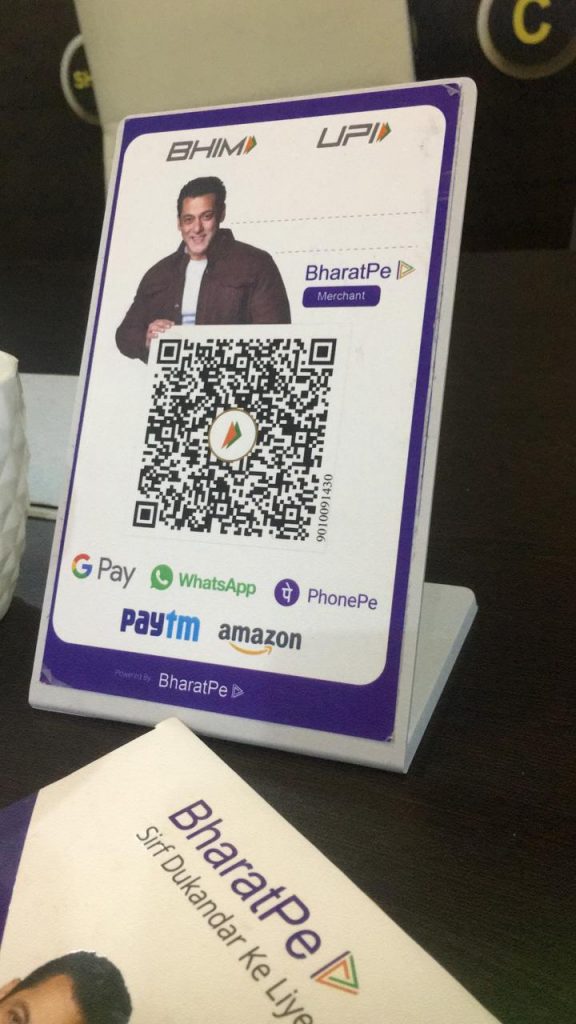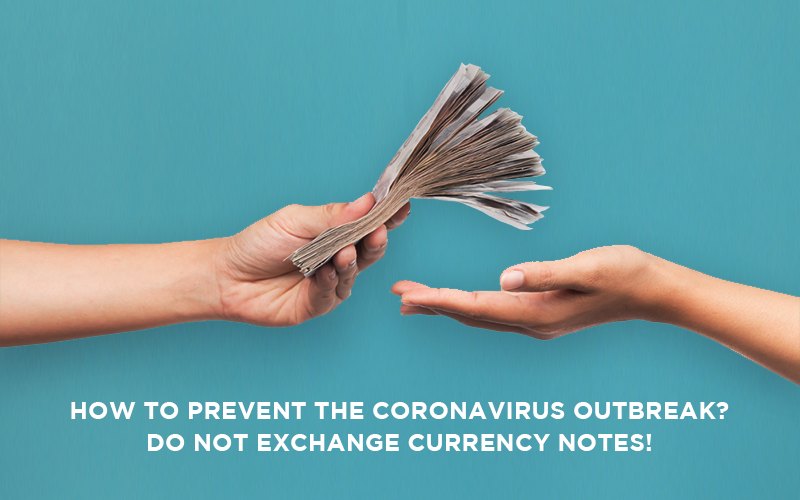Well, we know now that you cannot spread Coronavirus from Chinese Food or an Alcoholic Beverage – but did you know you are at risk of getting it through currency exchange?
Yes, that’s right!
Since India’s confirmed cases of Coronavirus or COVID-19 has shot up to 43, the Government has issued several measures to keep people safe.
But since we cannot keep washing our hands while out in public, the Confederation of All India Traders (CAIT) has urged the Government to order a large investigation of diseases spreading via currency notes.
What is Coronavirus (COVID-19)?
According to WHO, Coronaviruses (CoV) are a large family of viruses that cause illness ranging from the common cold to more severe diseases such as Middle East Respiratory Syndrome (MERS-CoV) and Severe Acute Respiratory Syndrome (SARS-CoV). A novel coronavirus (nCoV) is a new strain that has not been previously identified in humans.
Causes of Coronavirus (COVID-19)?
The WHO is not too sure what exactly causes the virus. For now, doctors and medical experts confirmed that it may be spread by respiratory droplets released when someone with the virus coughs or sneezes.
Also, a recent article by Economic Times stated that exchanging cash could be risky for people in countries where the virus is spreading fast. In India, we use cash to make small payments in vegetable markets, for autorickshaws or at restaurants. But this could be a problem, and the Government has advised against exchanging cash for payments.
No cash during coronavirus? No problem!
Currency notes are easy carriers of communicable diseases. In fact, The International Journal of Advanced Research in 2016 revealed that over 58% of banknotes carried disease-causing pathogens.
So, how do you make payments now? Go online! At times like this, it is best to use digital payments to carry out all your transactions.
How Digital payments are useful during a Coronavirus (COVID-19) outbreak:
QR Code Payments:
Almost every Khirana store in India has a QR Code setup on their cash counter. It looks something like this. If you do not have one set up in your store, don’t worry. It’s a simple process. All you need to do is download any QR code app like PhonePe, BharatPe or Google Pay or BHIM UPI and print your custom QR code.

Customers can use QR codes to pay for even the smallest transactions. Simply scan the QR Code to your phone via the app and pay the amount in seconds, All you need is a reliable internet connection.
UPI
UPI (Unified Payments Interface) is probably the most popular form of online payment there is today. Over 1 billion transactions are recorded monthly vis UPI Payments in India.
UPI allows you to make online payments using your mobile phone. Customers can make payments to you only if you have the app. You can use Google Pay, PhonePe, BHIM UPI on your phone. You can also link your UPI ID to your e-wallets and online apps.
Card Payments
We have been using credit cards and debit cards to make online payments for years now. A good enough substitute for cash, cards are a good idea if you run a business that requires a huge payment made by a consumer.
Payment Gateway
Using payment gateway like Instamojo is useful, especially to collect payments of large sizes from your customers. Simply share your payment link with your customers and they can pay you using UPI, NEFT/IMPS/, E-wallets or Cards. NEFT payments are available 24*7 now, so your customers can pay you online anytime, from anywhere.
E-Wallet / Digital Wallet
Digital wallet apps like Paytm, Zeta, and allow you to receive/make payments using money pre-loaded into the app. Now you can accept online payment from your customers via Digital Wallet or E-Wallet using Instamojo.
What the RBI wants you to do to prevent any spread of disease:
At the ATM: When you head to an ATM to withdraw cash, make sure you wipe the keypad with a tissue before and after you use it. Do not enter an ATM if it is crowded and if there is hand sanitiser available, do apply them on your hands’ post handling the cash.
At work: Your small business might have ample hand sanitizer, but we suggest you pay heed to employees who are unwell and provide them with the option to work from home.
Do not share utensils/spoons, keep a little distance from everyone. Also, close your mouth when you cough or sneeze. In a meeting or when you step out to meet vendors and clients, do not shake hands.
Delivering packages: This might come as a surprise, but if you are a small business that has to deliver packages on time to your customers, you need to make sure you provide the basic hygiene tips to your shipping partner.
You can also leave a note on the parcel asking customers to wash their hands thoroughly, after opening the package. Parcels go through a variety of transportations and get passed through several hands, so it is best to be aware.
Remember, do not panic, do not touch your face and most importantly, go collect your payments online – it could save your life!

